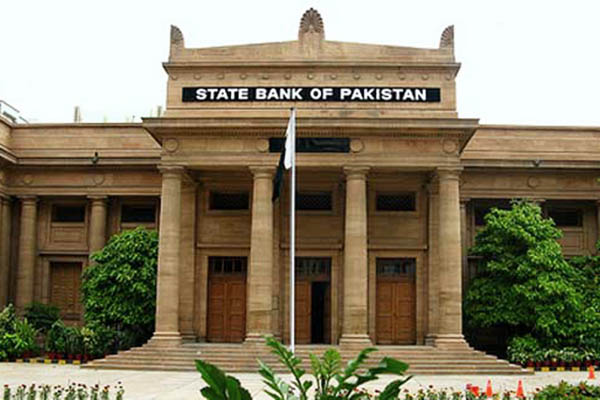
No Credit
The State Bank of Pakistan (SBP) on Monday raised its benchmark interest rate by 150 basis points, from 12.25 percent to 13.75 percent, the highest level in 11 years, to help “moderate demand to a more sustainable pace while keeping inflation expectations anchored and containing risks to external stability.”
Following a meeting of the central bank’s Monetary Policy Committee (MPC), it noted that provisional estimates showed growth in the current fiscal was much higher than expected even as external pressures and inflation persist. Attributing policy uncertainty and the fuel subsidy announced by ousted prime minister Imran Khan as fueling demand and compounding pressures on the exchange rate, the SBP noted that global inflation was linked to the Ukrainian conflict and supply disruptions caused by a new COVID wave in China. “As a result, almost all central banks across the world are suddenly confronting multi-year high inflation and a challenging outlook,” it added.
It said that the economy had rebounded “much more strongly” than anticipated in the wake of COVID—going from 5.7 percent last year to 5.97 percent this year—but inflation had reached a two-year high in April had now been in the double digits for six consecutive months. “On the external front, notwithstanding some encouraging moderation in the current account deficit during April, the rupee depreciated further due both to domestic uncertainty as well as recent strengthening of the U.S. dollar in international markets following tightening by the Federal Reserve,” it added.
The central bank said that its outlook “assumes continued engagement with the IMF, as well as reversal of fuel and electricity subsidies together with normalization of the petroleum development levy and GST taxes on fuel during FY23.” It warned that headline inflation would likely increase temporarily under these conditions and might remain elevated throughout the next fiscal year. “Thereafter, it is expected to fall to the 5-7 percent target range by the end of FY24, driven by fiscal consolidation, moderating growth, normalization of global commodity prices, and beneficial base effects,” it said, adding that the interest rates on export financing schemes and long term financing facility loans were also being raised.
“The MPC emphasized the urgency of strong and equitable fiscal consolidation to complement today’s monetary tightening actions,” read the statement. “This would help alleviate pressures on inflation, market rates and the external account,” it added.
On the growth rate, the central bank said that Pakistan experienced a relatively mild contraction after the COVID shock in 2020 and output was now above its pre-pandemic levels, requiring the tightening of macroeconomic policies to curtail inflation and reduce the current account deficit. “Most demand indicators have remained strong since the last MPC—including sales of POL and automobiles, electricity generation, and sales tax on services—and growth in LSM accelerated in March. Both consumer and business confidence have also ticked up. With the output gap now positive, the economy would benefit from some cooling,” it said, adding that growth was expected to moderate to 3.5-4.5 percent in FY23.
Forecasting the current account deficit to narrow from 4 percent of GDP this year to 3 percent next year, the central bank linked this to moderating demand and recent measures taken by the government to curtail non-essential imports. “This narrowing of the current account deficit together with continued IMF support will ensure that Pakistan’s external financing needs during FY23 are more than fully met, with an almost equal share coming from rollovers by bilateral official creditors, new lending from multilateral creditors, and a combination of bond issuances, FDI and portfolio inflows,” it said.
Comparing the primary deficit of 0.7 percent of GDP this year to the primary surplus of 0.8 percent of GDP last year, the MPC said this “slippage was driven by a sharp rise in non-interest expenditures, led by higher subsidies, grants and provincial development expenditures.” It called on the government to take timely action to restore fiscal prudence, while providing adequate and targeted social protection to the most vulnerable.
“As electricity and fuel subsidies are reversed, inflation is likely to rise temporarily and may remain elevated through FY23 before declining sharply during FY24,” it added.
